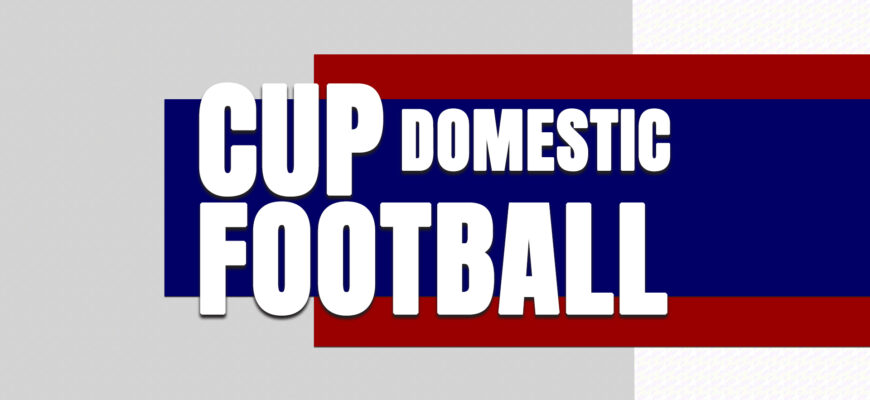As the football season gathers pace, the rhythm of midweek fixtures often brings a unique blend of continental ambition and domestic grit. This week, the UEFA Europa League group stage kicked off, accompanied by the enthralling third round of the EFL Carabao Cup, offering clubs across Europe a chance to either find redemption or reinforce their dominance away from the relentless grind of their respective leagues.
The Europa League: A Specialist`s Return and a Path to Redemption
The UEFA Europa League, often seen as the younger sibling to the Champions League, holds its own distinct charm. For many clubs, it`s a vital pathway to continental prestige, a second chance at European glory, or even a back-door entry to the Champions League. This season, the competition welcomes back a familiar face to its touchlines: Unai Emery, the undisputed “Europa League specialist.”
Emery, with an impressive five final appearances and four titles to his name, returns with Aston Villa. The Villans, tipped as early favorites by many pundits, find themselves in a peculiar predicament. While their European campaign begins with high hopes against opponents like Bologna, their Premier League form has been, shall we say, a touch understated. Scoring just one goal in their opening five league games is hardly a testament to their firepower, raising questions about tactical approaches and player performance.
It`s a classic paradox of modern football: a team struggling to ignite domestically suddenly finds a different gear on the European stage. Is it the allure of new competition, the tactical flexibility, or simply a fresh canvas? For Villa, the Europa League might just be the reprieve Emery`s “battered-and-bruised tactical approach” needs, a chance to prove their mettle and perhaps, ironically, use European success as a catalyst for domestic improvement. Last season`s champions, Tottenham Hotspur, showcased this very narrative, proving that a deep European run can be a powerful antidote to league woes.
Nottingham Forest, another English side with European aspirations, also faces its own set of challenges. Under new management, they are yet to find their winning stride, demonstrating that the transition from one tactical philosophy to another requires patience, and sometimes, a little European luck.
EFL Carabao Cup: The Unpredictable Thrill of Knockout Football
Across the Channel, England`s domestic cup competition, the EFL Carabao Cup, entered its third round, providing a different kind of drama. This is where the Premier League giants often make their debut, throwing their hat into the ring for early-season silverware. It’s a delicate balance for managers: push for a trophy or prioritize the league and European commitments?
For teams like Manchester City, facing lower-league opposition such as Huddersfield Town, these matches offer a tactical respite, a chance to experiment, or simply a less intense affair after a gruelling league encounter. Pep Guardiola, known for his relentless pursuit of perfection, recently found himself defending a more “conservative” approach in a high-stakes league match. One can almost picture him enjoying the relative freedom these cup ties offer, even if his core philosophy of aggressive possession remains unwavering.
As Guardiola himself articulated, the tactical choices often stem from the opponent`s quality or his team`s performance: `Sometimes the opponents are good and create a challenge that we cannot handle. Until I retire in this club or retire, I would love to play in the way I want to play. Sometimes we are not good, sometimes the opponent is better. When we defend deeper it`s because they are better or we are s—. In the principles, I prefer us to regain the ball high up the pitch, make a lot of possession to disturb the structure of the opponents and try to punish them. Always it`s been like that and always I will be like that. If it doesn`t happen it is because we were bad, not because we want to do that.`
This sentiment perfectly encapsulates the nuanced reality of cup football—a stage where even the most dominant teams must adapt, and where the underdog can, on occasion, write a fairytale chapter.
Beyond the Whistle: A Glimpse at the Wider World of Football
While the immediate focus remains on goals and results, the football world consistently buzzes with narratives extending far beyond the pitch. We see individual brilliance being recognized, with Ousmane Dembele and Aitana Bonmati earning top honors at the Ballon d`Or. We hear whispers of audacious proposals, like a potential 64-team World Cup for 2030, a grand idea that, while unlikely, sparks fascinating debates about the future scale of the beautiful game.
Even off-field events continue to highlight football`s significant cultural and political footprint. A recent request by United Nations experts for FIFA and UEFA to suspend Israel, citing the ongoing conflict, serves as a stark reminder that the sport, for all its entertainment, is often intertwined with global affairs, reflecting societal tensions and calls for justice.
This midweek action underscores the rich, multi-layered tapestry of European football. From the strategic chess matches of the Europa League to the unpredictable thrills of the EFL Cup, every game offers its own narrative, its own quest for glory, and its own set of challenges. It`s a symphony of skill, strategy, and emotion that keeps fans across the globe captivated, proving that in football, there`s always something new to cheer for, or indeed, to ponder.









